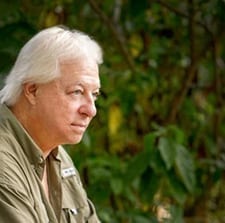You See It; You Own It, Part I
August 13, 2019By Tom Poland
Things weren’t going well and my boss called me into his office. “If you see a problem, you own it.” Great advice. You see a piece of litter; you own it. Pick it up.
What a blight plastic bottles and fast food containers are. What a curse. What sorry, lazy, no count people they are who toss litter out their window. Trifling, Mom would have said. I police the road by my court and the highway by my late parent’s home. I know what I’ll see. Plastic bottles and the aforementioned fast food trash … cups, Styrofoam containers, plastic tableware, napkins, straws, and wasteful plastic packets of condiments. There ought to be a special place in Hell for whoever invented those packets. Much of the condiment remains in the packet. Delirious ants surely high five each other when they find discarded packets.
How I long for the days when you’d go into a restaurant and sit down to a table with cloth napkins, stainless steel tableware, glass bottles of ketchup, and real salt- and peppershakers. Those days are gone with the wind, but a new wind blows plastic and paper all over the land and waterways. Sure would be nice if we enacted laws banning fast food restaurants’ use of plastic or restricted it to “to go” orders only. Bring back glass soft drink bottles with deposits.
You see a problem; you own it. That’s the approach Ken Leach and his anti-litter Star Fort Brigade task force take in Greenwood. Ken, a retired forester, works with Keep Greenwood County Beautiful (KGCB) and other organizations such as the SC Forestry Association, SC DNR, and Lander University’s Environmental Studies Student Organization (ESSO) to do just that. In fact, ESSO and KGCB are partnering to build on Ken’s efforts. Part II will reveal how Ken and his anti-litter Brigade are fighting the litter problem, but first I want to share Ken’s perspectives on what’s behind the ever-growing litter problem.
“We occasionally had issues with dumping on remote roads or at gates,” said Ken, “but we didn’t have the extensive litter across the state like we do today.” Ken and his wife, Robin, policed and analyzed .4 of a mile of roadway and found a staggering amount of litter: 19 cups, 267 plastic drink bottles, 23 plastic bags, 117 “other plastic litter,” 60 aluminum cans, 48 glass bottles, 10 paper cups, 2 paper pates, 44 paper bags, 21 foam fast-food containers, 50 foam cups, 1 foam packing container, and 45 miscellaneous pieces of litter that didn’t go into the study. Keep in mind that wasn’t even half a mile of roadway.
Here are some of Ken’s thoughts as to possibly why litter is suh a problem. “Rural communities have declined, and fewer rural schools anchor smaller communities. Old community patriarchs have passed on and younger folks just don’t seem to care. Mom and pop stores, a source of community pride, have all but disappeared. Families have fallen apart in towns, cites, and the countryside. No values are being instilled in our youth.
“Convenience stores have proliferated, offering a banquet of items to consume while driving, with litter simply tossed from the window. Fast food has taken over the sit-down lunch or family supper, leading to more paper, plastic, and foam items in roadside ditches.”
Ken hits the nail on the head, citing other contributing factors. “The days of the county inmate work crew are about over. Counties have a list of reasons not to pursue them such as liability, inmate’s rights, embarrassment, inconvenience, and lack of money for supervising work crews. No one is accountable for correcting the deplorable state of affairs. Confusing laws and regulations limit Department of Transportation’s and the Department of Correction’s use of inmates.”
So, here we are. People have more stuff than ever to toss out the window but we have fewer people to pick it up. As Ken so rightly says, “All sane people are fed up with litter.” Something must be done. Stay tuned for Part II.
Visit Tom Poland’s website at www.tompoland.net
Email Tom about most anything. [email protected]
Tom’s work appears in publications throughout the South. His books include South Carolina Country Roads, Classic Carolina Road Trips From Columbia, Georgialina, A Southland, As We Knew It, and Reflections of South Carolina, Vol. II. He writes about the South, its people, traditions, lifestyle, and culture. He’s member of the SC Humanities Speaker’s Bureau. Governor Henry McMaster conferred the Order of the Palmetto upon Tom for his body of work on South Carolina. Tom grew up in Lincoln County, Georgia, and graduated from the University of Georgia. He lives in Irmo, South Carolina.















